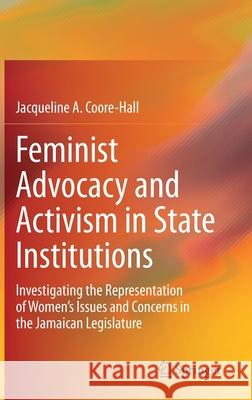Feminist Advocacy and Activism in State Institutions: Investigating the Representation of Women's Issues and Concerns in the Jamaican Legislature » książka
topmenu
Feminist Advocacy and Activism in State Institutions: Investigating the Representation of Women's Issues and Concerns in the Jamaican Legislature
ISBN-13: 9783030346782 / Angielski / Twarda / 2020 / 146 str.
Feminist Advocacy and Activism in State Institutions: Investigating the Representation of Women's Issues and Concerns in the Jamaican Legislature
ISBN-13: 9783030346782 / Angielski / Twarda / 2020 / 146 str.
cena 200,77
(netto: 191,21 VAT: 5%)
Najniższa cena z 30 dni: 192,74
(netto: 191,21 VAT: 5%)
Najniższa cena z 30 dni: 192,74
Termin realizacji zamówienia:
ok. 22 dni roboczych
Dostawa w 2026 r.
ok. 22 dni roboczych
Dostawa w 2026 r.
Darmowa dostawa!
Kategorie BISAC:
Wydawca:
Springer
Język:
Angielski
ISBN-13:
9783030346782
Rok wydania:
2020
Wydanie:
2020
Ilość stron:
146
Waga:
0.40 kg
Wymiary:
23.39 x 15.6 x 1.12
Oprawa:
Twarda
Wolumenów:
01
Dodatkowe informacje:
Wydanie ilustrowane











